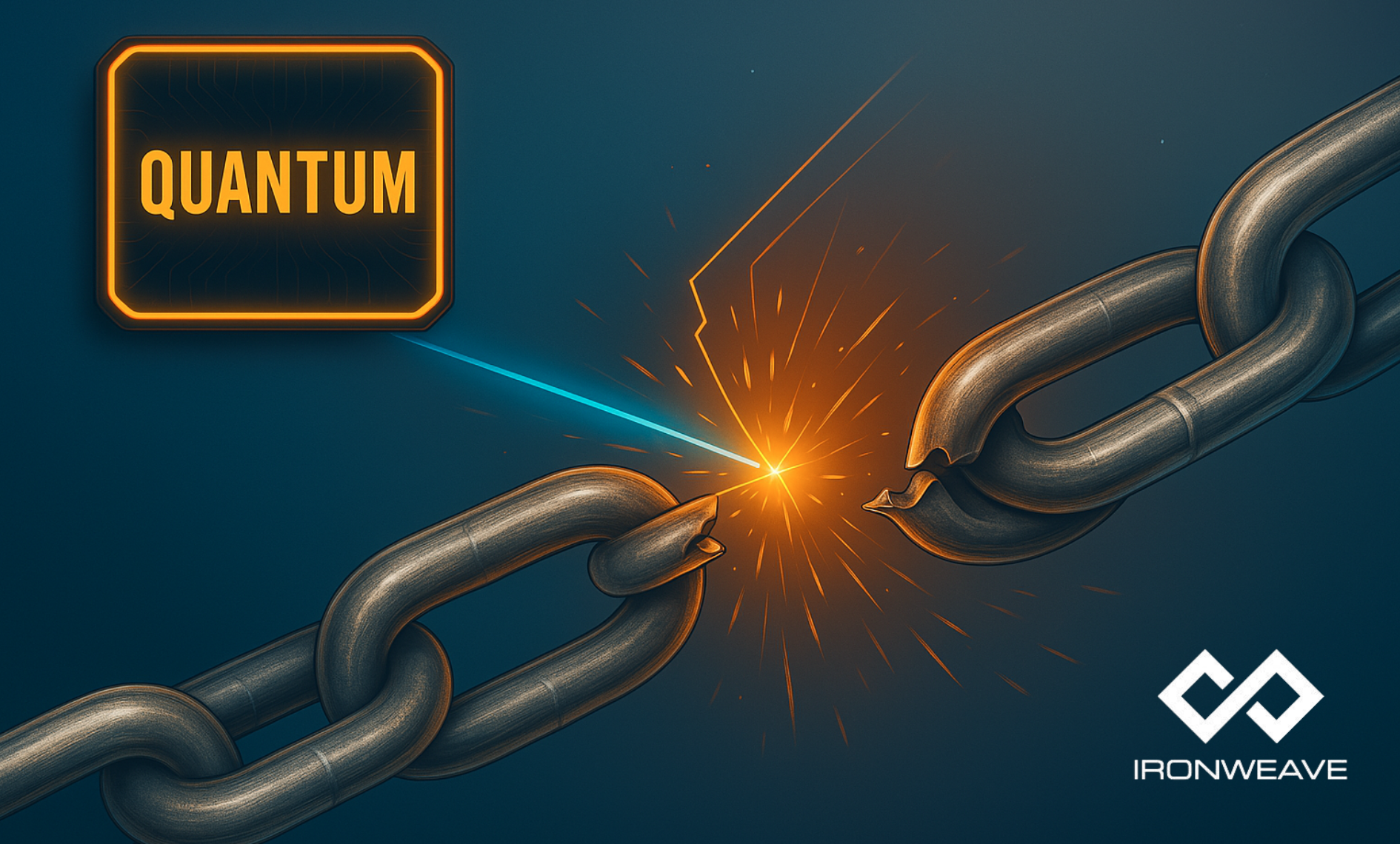Quantum Computing, The Threat to Blockchain

What Is Quantum Computing—And Why Does It Matter?
Quantum computers are almost inconceivably more powerful than the computers we’re used to today. Instead of using bits that represent 1s or 0s, quantum computers use qubits that can exist in multiple states at once, which gives quantum computers a massive advantage in solving complex mathematical problems—particularly those used in encryption.
Blockchains today rely on elliptic curve cryptography (ECC), like the Elliptic Curve Digital Signature Algorithm (ECDSA), which is currently secure because today’s computers can’t feasibly reverse-engineer a private key from a public key. But for a quantum computer? That kind of math becomes trivial.
With enough qubits and stability, quantum computers will be able to:
- Crack widely used cryptographic algorithms like ECDSA.
- Derive private keys from public blockchain addresses.
- Decrypt encrypted messages and transaction data.
- Bypass digital signature protections on smart contracts and identity systems.
These quantum computer concerns are no longer science-fiction scenarios. Google's Willow chip—packing 105 qubits—has demonstrated capabilities that would take traditional supercomputers trillions of years to match. And the error rates are improving.
Breaking the Chain: What Quantum Means for Blockchain Security
Quantum computing is not just a personal security issue. Quantum computing represents a structural threat to the entire blockchain ecosystem.
Quantum computing opens the door to catastrophic real-world consequences:
- Theft of funds from millions of crypto wallets.
- Loss of confidence in major blockchain networks.
- Market-wide asset manipulation and fraud.
- Inability to verify data integrity or ownership.
- Potential collapse of systems built on immutable ledgers.
Industry voices are starting to ring alarm bells. At the Bitcoin 2025 conference in Las Vegas, Jameson Lopp, CTO of Casa, laid it out clearly:
“It’s difficult to say that we have decades because it seems like the timelines are getting compressed. The real question is: Can Bitcoin come together and find consensus on how to mitigate this threat before it really becomes an existential crisis?”
Researchers at the University of Kent echoed that urgency, writing that quantum computing
"represents a serious threat to cryptocurrencies and requires a proactive approach... to preempt disruption to an industry worth hundreds of billions of dollars annually."
And yet, most public conversations remain stuck. Debates about hard forks and quantum-resistant upgrades are ongoing, but action is minimal. Meanwhile, quantum capability accelerates.
IronWeave: A Future-Proof Foundation
IronWeave architecture was designed to address a future that includes quantum computing.
IronWeave doesn’t rely on a single blockchain. Nor does IronWeave get locked into static cryptographic assumptions. Instead, IronWeave is built on a decentralized mesh of secure, private chains that operate independently but can interconnect securely. This means:
- No central chain to compromise. There’s no single point of failure.
- Modular / pluggable encryption. Cryptographic protocols in IronWeave can be upgraded as new, stronger algorithms emerge—including post-quantum encryption standards.
- Tamper-resistant and private by default. Even quantum-enabled attackers can't access or rewrite data or blocks that they can't find.
Most blockchain networks today are frozen in place. Upgrading them to quantum-resistance is a slow, politically fraught process—if it happens at all. IronWeave, on the other hand, was designed with cryptographic agility in mind, because the encryption used by any user account, or app, or data store, or smart contract can be specified and implemented upon the account/app/block/contract’s creation. IronWeave is ready to integrate quantum-resistant tools today—and evolve with whatever comes next.
The Clock Is Ticking: Time to Build Secure by Design
Quantum computing poses a threat not only to cryptocurrencies, but also to any centralized or outdated system of data storage and authentication. Whether it’s financial transactions, supply chain data, personal health records, or AI training datasets—if your data matters, it must be protected.
Most of today’s centralized systems and blockchains are sitting ducks. Once quantum capability is weaponized, the damage will be fast, large-scale, and irreversible.
But this isn’t a reason to panic—it’s a reason to build better.
IronWeave offers a path forward:
- Decentralized and redundant architecture.
- Private and immutable by design.
- Modular and quantum-ready.
It’s the only safe foundation for a future where trust, security, and resilience aren’t optional—they’re essential.
